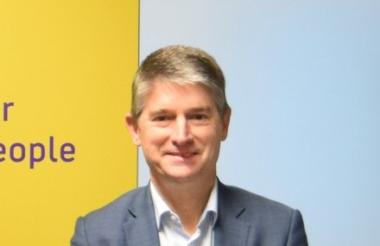Health and care charities have launched emergency fundraising appeals warning that they are running out of money and equipment.
Charities that provide health and care support to vulnerable people have seen demand increase but income has collapsed and supplies are running out.
Hospices have been particularly badly hit, with Hospice UK estimating the sector is losing £70m a week.
The charity sector has been pressuring the government to put in place funding for charities affected by coronavirus.
On Friday Michael Gove, chancellor of the Duchy of Lancaster, said that a package of support is expected to be announced in the coming days.
Scope: ‘We are unable to raise the funds we need to keep going’
Scope, a charity that supports disabled people, launched an emergency appeal for donations at the end of last week because shop closures and cancelled fundraising events have cut off its normal income streams.
Mark Hodgkinson, chief executive of Scope, said: “The uncertainty we are all feeling is even more heightened for disabled people who are worried about the impact self-isolation will have on their lives – from the shortage of carers due to illness, to the scarcity of essential supplies and supermarket delivery slots.”
He added: “During these challenging times we have adapted our services so we can provide the vital advice and support to those who need it most.
“However, Scope is an organisation that is funded almost entirely by the donations, and we will not be able to provide our services over the next few months without your help. In this dramatically changing world, with the closure of our shops and cancellation of fundraising events, we are unable to raise the funds we need to keep going.”
Marie Curie: ‘We need to raise £2.5m a week to keep nurses on the frontline’
Marie Curie said it needs to raise £2.5m a week so that its nurses can continue to support people with terminal illnesses both at hospices and in their homes.
Matthew Reed, chief executive of Marie Curie, said: “At this time of national emergency, Marie Curie Nurses and frontline staff are needed more than ever as the NHS is put under ever greater strain. We’re ready and geared up to help, with hospice beds and nurses on standby.
“Sadly, some people’s lives will be shortened by Coronavirus, so the need for end of life care will be greater. Marie Curie can meet this need, and in doing so will help free up intensive care beds needed for coronavirus patients.
“But just as we want to help, our income has been decimated. We need donations urgently to keep our nurses and hospice staff on the frontline.
“Unlike other healthcare providers, Marie Curie is reliant on donations from the public to survive. Every week the charity needs to raise £2.5m to care for the tens of thousands of people who require nursing and hospice care.
“At the moment, our ability to fundraise is seriously compromised. Events are being cancelled, and we’ve had to close our shops. That is why we have launched an emergency appeal to make up the shortfall, and ensure the charity can care for more dying patients, support the NHS and ultimately save lives in the weeks and months ahead.”
Sue Ryder: ‘We only have enough protective equipment for a few days’
Sue Ryder, which also provides palliative care support, said it urgently needs more protective equipment for its staff. It said that if it is not able to keep its staff, then patients will be transferred to hospitals, placing more strain on the NHS.
Heidi Travis, chief executive at Sue Ryder, said: “As a result of Covid-19 we are expecting an increase in people needing end-of-life care in the coming weeks and months.
“The NHS is asking Sue Ryder to plan to support more patients and yet our medical teams are already providing palliative care for patients with coronavirus symptoms with only enough personal protective equipment for a matter of days.
“This means that Sue Ryder will soon be unable to protect our doctors and nurses from contracting the virus. We will not put our staff at risk and so this will lead to staff shortages at a time when they are needed more than ever before.
“If we are to protect our staff against the spread of Covid-19 and continue to care for patients who are dying, in turn supporting the NHS, an immediate solution is needed.
“With a depleted workforce, there will not be enough staff to run the charity’s hospices and Hospice at Home services across England. This will lead to patients being transferred to hospitals which will put additional strain on the NHS.
“We are willing participants in the coronavirus effort. We want to use our skills, expertise and experience to help in the months ahead, but this will simply not be possible if we cannot access the equipment needed to protect our staff.”
Bloodwise: 'Monumental increase in calls'
In an article for the Sunday Times, Gemma Peters, chief executive of Bloodwise, said: “We’ve seen a monumental increase in calls to our support line since the public were informed that people with blood cancer are at particularly high risk from the virus. We’ve had to draft in members of other teams to answer the thousands of phone, email and social media requests for advice. It has been all hands on deck and working all hours, but we can’t keep up.”
She added: “Bloodwise is more fortunate than some. However long it takes, I am confident that we will weather the storm. But we will emerge a bruised organisation, weaker and less able to support the people who need us. We are already facing agonising decisions about what we will no longer do and whom we will no longer support.
“Others are not so lucky. Without the kind of financial support that the government has given the private sector, thousands of charities doing brilliant work on difficult societal issues will close — some in the next few weeks.”
GOSH Charity: ‘We urgently need to continue supporting the charity’
Great Ormond Street Hospital (GOSH) Charity also launched an appeal at the end of last week.
It said the hospital is doubling its capacity to help support the Covid-19 effort, but it has stopped much of its normal fundraising activity.
In a message to supporters Louise Parkes, chief executive of GOSH Charity, said: “We urgently need to continue supporting the hospital in whatever way we can as it copes with the current crisis. We’re dealing with an unpredictable, evolving situation, with the hospital needing to react quickly to changes as they happen daily.
“As the safety of our supporters and staff is paramount, we’ve put many of our usual fundraising events and activities on hold. Your donations at this time will therefore make an enormous difference and allow us to continue providing vital support to staff, patients and their families in this difficult time and beyond.”
Hospice UK: ‘Hospices are about £70m a week down’
Hospice UK warned that the sector was about £70m a month down because of the crisis.
Tracey Bleakley, chief executive of Hospice UK, told ITV News: “If a hospice becomes insolvent, it goes.
“The shops we’ve closed, we’re still having to pay rent. The events we’ve cancelled, we still have to pay out all the costs and it has meant fundraising has fallen off a cliff.”
Many local hospice charities have launched emergency appeals.
Last week Nigel Harding, chief executive of Shooting Star Children’s Hospices, said it had already shut one of its two hospices and that its future hung in the balance.
He said: “We are doing everything in our power to appeal to senior MPs and health authorities to help us, but right now we are predicting a shortfall of more than £2m in the upcoming financial year, putting the future of Shooting Star Children’s Hospices in the balance.
“To continue to be there for the babies, children and young people, and their families, who need us now and long into the future, we have already had to make the difficult decision to close one of our hospices. We have also had to prioritise those most in need, only providing end-of-life care and emergency respite. For us to maintain even this level of care, we need the help of those in the community.
“The stark reality is, if we don’t receive financial support in the coming weeks, we could face having to stop providing end-of-life care and emergency respite too and with the pressures facing the NHS, our services for those most vulnerable in our community are needed now more than ever.”
Related articles












